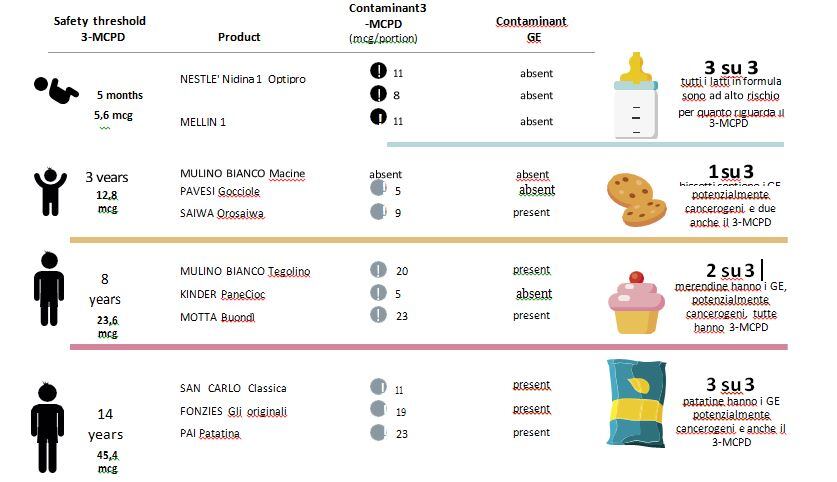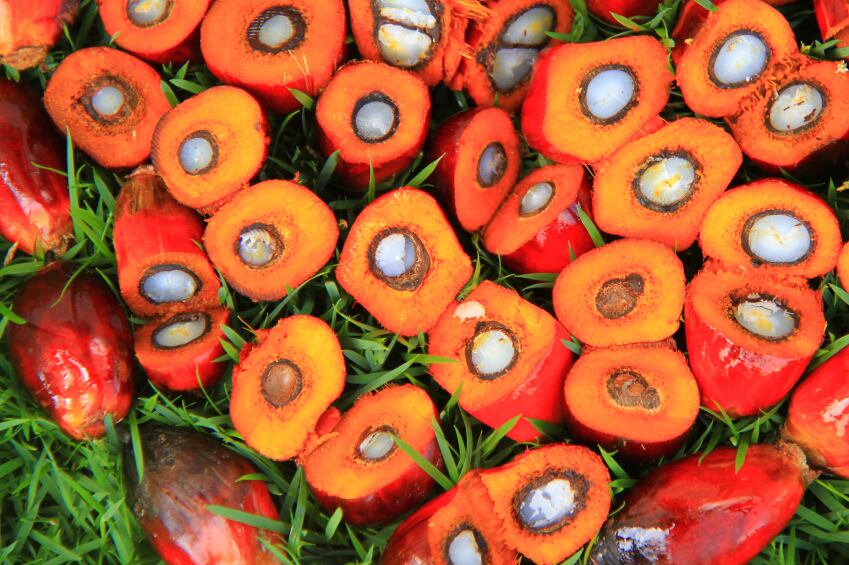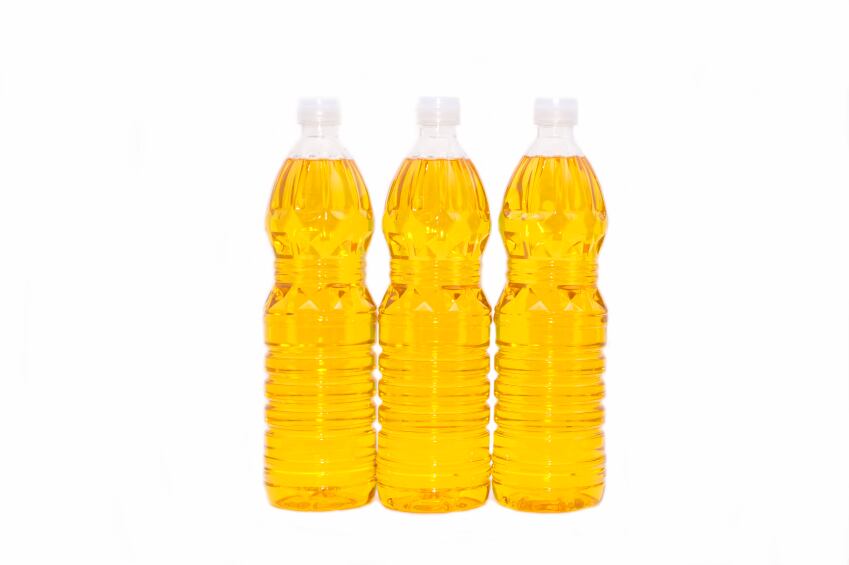Earlier this year the European Food Safety Authority (EFSA) published an opinion on the carcinogenic contaminants 3- and 2-monochloropropanediol (MCPD), their fatty acid esters as well as glycidyl fatty acid esters (GE) found in processed vegetable oils.
Levels are especially high in palm oil, and the opinion found the average intake of infants and children is above the tolerable daily intake.
Supermarket scanner
Altroconsumo tested the following products:
Infant formula: Nidina 1 OPTIPRO, Humana 1, Mellin 1
Cookies: Mulino Bianco Macine, Pavesi Gocciole, Saiwa orosaiwa
Snacks: Mulino Bianco Tegolino, Kinder Panecioc, Motta Buondì
Crisps: San Carlo Classic, Fonzies originals, Pai Patatina
'Alarming' results
In light of this, Italian consumer group has tested 12 products on the market marketed to or commonly eaten by children.
"The results are alarming," it writes in Italian. "The new safety threshold established by the EFSA expert panel for 3-MCPD, toxic contaminant for the kidneys and testicles, is exceeded up to ten times for infants exclusively fed with infant formula.
"Even children and adolescents who consume in a day more than one snack or a snack combined with a biscuit or a packet of crisps are likely to easily exceed the tolerable daily intake. Not only that, we found the GE contaminants that the European authority classifies as potentially carcinogenic, in all chips and in some of cookies and snack foods analysed."
The consumer group has written open letters to the director general of DG Sante Xavier Prats Monne as well as the Italian health minister calling for legislative action but has not yet received a response from either.

Secretary general Luisa Crisigiovanni told FoodNavigator: “We are aiming to ask national and EU institutions to rapidly adopt binding legislation about new limits on palm oil contaminants suggested by EFSA. We also want to promote further independent research about the risks of these contaminants, especially 3MCPD.”
Crisigiovanni said that while nutritional and environmental problems associated with palm oil have stirred public attention, awareness of its safety is much less known.
It is aiming to raise awareness with an online petition calling for legislative action which to date has received 1,663 signatures, and has promoted the launch of an app, Merendiario, which allows parents to track the health profile of children’s snacks.
A search engine available on its website lets consumers filter common grocery products to find the ones that are (among other criteria) palm oil-free.
Altroconsumo praised three companies - Coop, Colussi and Plasmon - for committing to cut palm oil out of their products as a direct result of the EFSA opinion.

Barilla told us it has been reducing palm oil from its bakery products since a 2013 commitment to cut saturated fat, and it had so far covered around 25% of its Italian range and 50% of products on the European market.
The Altroconsumo tests confirmed that contaminants were absent in Mulino Bianco Macine because it was made with sunflower oil.
Nestlé said it has worked with oil and fat producers since 2006 and has achieved a five-fold reduction in 3-MCPD levels in infant formula.
'It's not about healthy food but safe food'
Other industry players are waiting for government to make the first move.
Italian bakery trade group AIDEPI told Altroconsumo: “We expect the Commission to give the necessary information from the regulatory point of view. We are open to the most total cooperation with the authorities to ensure the maximum protection to consumers."
Marco Silano of the Higher Institute of Health said: “Here we are talking about food security, not more or less healthy choices. The resolution of the problem has to be borne primarily by the authorities and then by the food industry, which will need to adapt to new regulation."

Last month an expert committee, representing the Commission and member states, decided that EU regulatory measures to limit the presence of these substances in food is "appropriate to provide a high level of human health protection".
A follow-up meeting is scheduled to take place before the end of this month.
But according to food lawyer Dario Dongo, food business operators should be acting of their own accord to remove unsafe products from the market as is stipulated by article 19 of the EU's General Food Law (Reg. EC 178/02).
“Yet, food control authorities don't seem to be eager to working on this crisis, while Ministry of Health ministers are still sleeping, as [is] the Lithuanian Commissioner for Health (health of the lobbies, as it seems)," he said.
Altroconsumo recognises that reformulation is not simply an economic issue and that technical challenges exist.
Crisigiovanni said: “Liquid vegetable oils with a low content of saturated fat don’t behave in the same way as solid fat with a high content in saturated fat, and [regarding] shelf-life, all products that are composed of oils with a high content of unsaturated fat go rancid faster than others do.”
